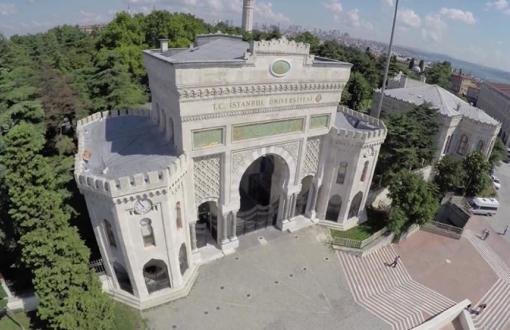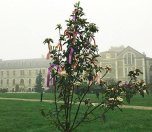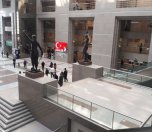Click to read the article in Turkish
In its statement issued yesterday (May 14), Human Rights Watch (HRW) expressed that the government has dismissed thousands of academics and tried hundreds of others, academics’ studies and student demonstrations have been intervened and these lead to auto-censorship in the country.
“The Turkish government’s crackdown is targeting academics and damaging its universities”, said Hugh Williamson, Europe and Central Asia director at Human Rights Watch. “Academics and students should be free to express, teach, and research controversial or critical ideas without risking dismissal or imprisonment.”
“One major role of universities is to provide a forum for critical debates and scholarship on controversial topics,” Williamson said. “Turkey’s assault on academic freedom negatively affects not only its universities, but also society at large.”
“No evidence proving academics being involved in violence”
“Under the current state of emergency, put in place shortly after the coup attempt in July 2016, President Recep Tayyip Erdoğan chairs the cabinet, which can pass emergency decrees without parliamentary scrutiny or the possibility of appeal to the constitutional court.
“Under a string of emergency decrees issued since July 2016, more than 150,000 public officials have been fired without due process, including more than 5,800 academics.
“According to government statements, the main target is employees suspected of ties with the Gülen movement, a religious movement headed by the US-based cleric Fethullah Gülen.
“The Turkish government describes the movement as the “Fethullahist terrorist organization” (FETÖ) and accuses it of being the main group responsible for the coup attempt. But Human Rights Watch has seen no evidence in relation to individual academics that would support the conclusion that they were involved in violence, plotting a coup, or other conduct that would justify their dismissal.
Moreover, it is clear that the purges target a much wider group of people, including critics of the government, and human rights defenders. The targeting of signatories of the January 2016 Academics for Peace petition is an example of this.
“More than 2,000 academics signed the petition. At least 378 of them have been dismissed from public universities and barred from public service under state of emergency decrees. Public and private universities fired at least 86 others without emergency decrees. Hundreds more are under disciplinary investigation”.
“Several academics interviewed said that the government and university administrations had intervened to seek to prevent academics from carrying out research or attending conferences on critical issues.
“One academic who wished to remain anonymous said that the university administration asked the academic to ‘be cautious’ in choosing seminar and research topics, and said that that the administration regarded subjects pertaining to longstanding efforts by the Kurdish population to obtain greater language and political rights, and religious minorities in Turkey as ‘too sensitive at the moment’”.
“Many professors and students said that the crackdown on all facets of university life has led to widespread self-censorship and a stagnant academic environment.
“They said that Turkish universities are no longer places where critical debates, creative thinking, and the discussion of controversial ideas were possible. ‘Fear and self-censorship are like smoke’, said a senior academic who wished to remain anonymous. ‘It seeps everywhere, and it gets thicker every day. We cannot breathe anymore’.
“One major role of universities is to provide a forum for critical debates and scholarship on controversial topics”, Williamson said. “Turkey’s assault on academic freedom negatively affects not only its universities, but also society at large.” (AS/TK)






